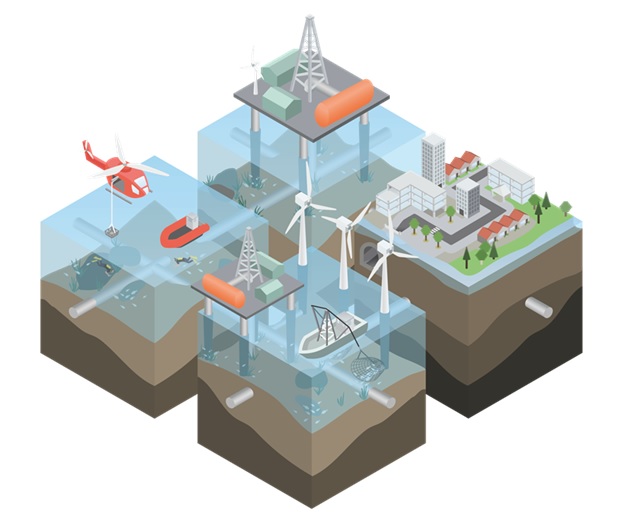NSE presents first year results

Groningen, 28 May 2018 – The North Sea Energy (NSE) Consortium today presented the results of the first year of its research programme in Scheveningen. The NSE programme is executed by some 20 parties from the offshore industry to help accelerate the energy transition on the North Sea. New Energy Coalition’s research group lead by professor Catrinus Jepma calculated where various smart connections between activities of offshore wind- and offshore oil- and gas operators are economically feasible.
Competitive offshore production of green hydrogen
Jepma (Energy Delta Institute/New Energy Coalition) and his researchers mainly looked at the options for wind energy to be directly delivered to nearby oil- and gas platforms, from where green hydrogen can be produced. In this way, a contribution can be made to the stabilisation of the electricity grid. Furthermore, an important cost reduction is being realised: less investments in the electricity network will be required due to the transportation of the hydrogen via the existing gas infrastructure. Calculations in the report show that in the foreseeable future green hydrogen can be produced at a cost price similar to the current cost price of grey hydrogen, namely between €1,- and €2,25 per kilo. These results do require coordination between the several stakeholders and an effective policy framework in order to translate these system connections into business cases.
Promising opportunities for carbon emission reduction
Smart system connections between offshore gas and wind production also offer opportunities to contribute to the Paris climate goals. The calculations proved that the offshore system connections, for example via hydrogen production; carbon storage; or by placing electrolysers in windmills; can lead to a price per prevented ton of carbon in the order of €50-€75.
About NSE
The North Sea Energy programme started in May 2017 to help accelerate the energy transition in the North Sea. This programme is supported by Topsector Energie and has some twenty participants from the corporate world, branch organisations, knowledge institutes and NGO’s. The programme has an intended project lead time of several years.
Appendix: EDI/NEC sub study of the NSE programme

